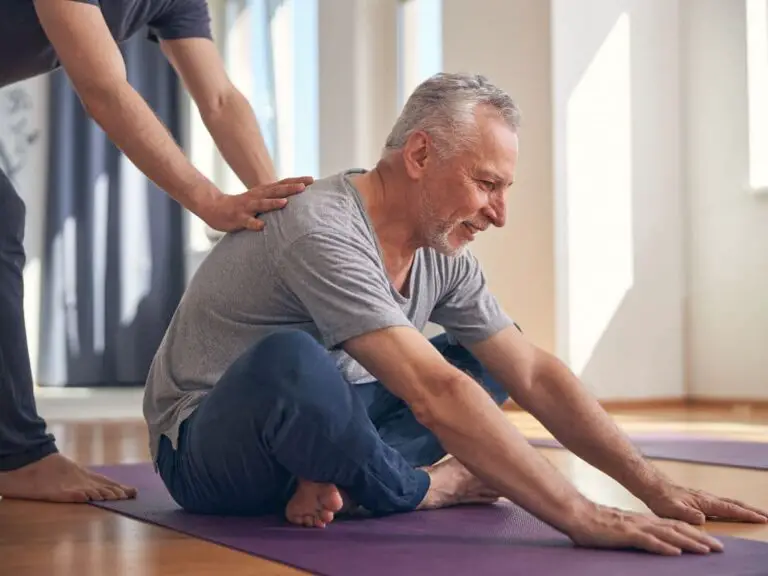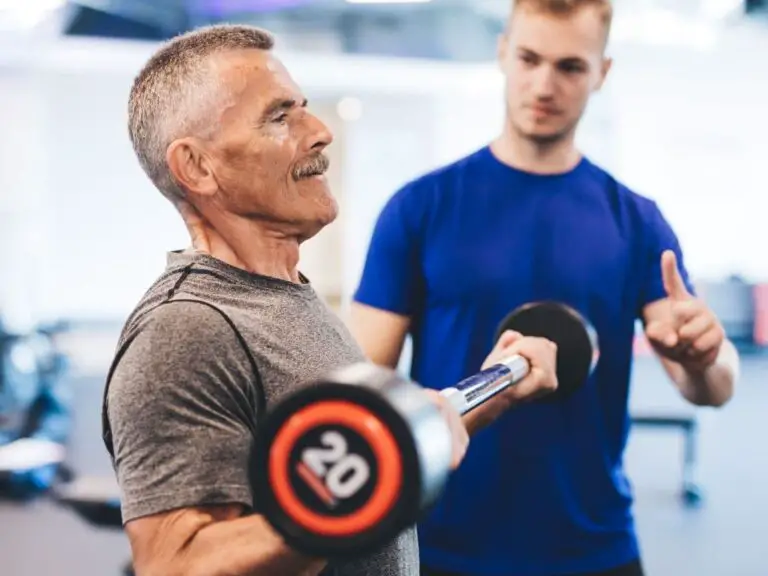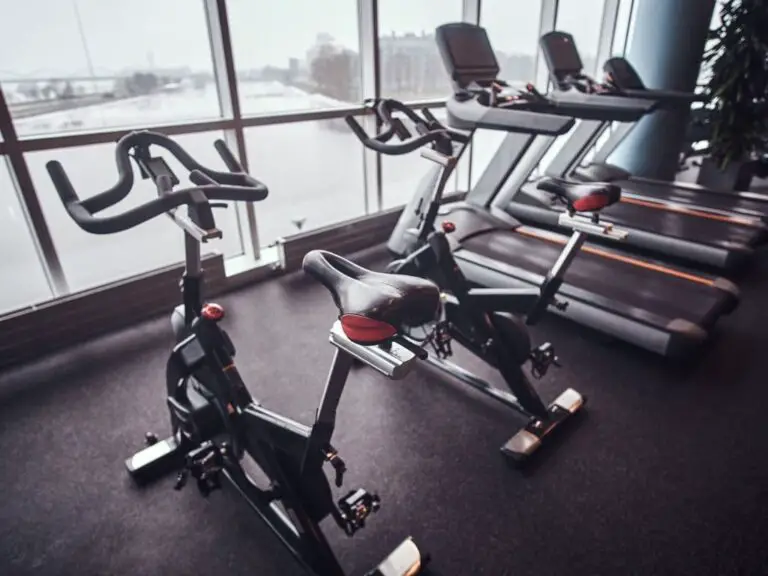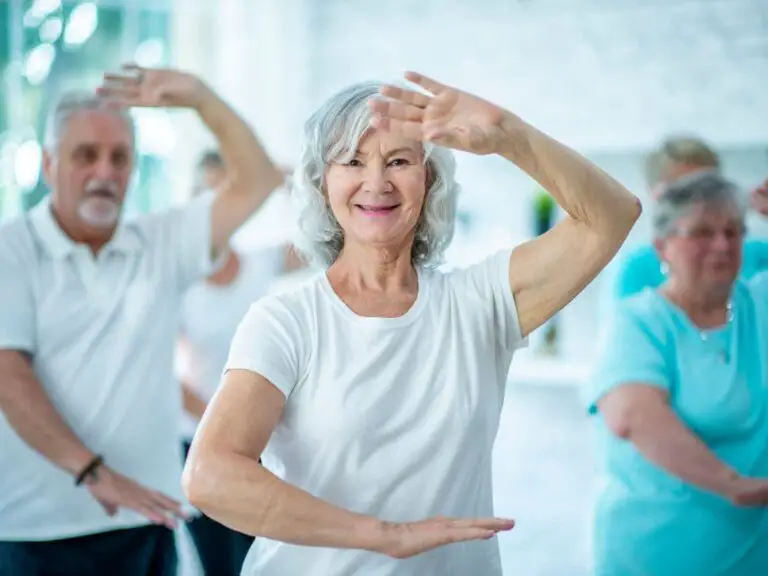Is it Better to Shower in the Morning or at Night?
When it comes to maintaining good personal hygiene and cleanliness, one of the most basic practices is showering or bathing regularly. As we get older, a proper bathing routine becomes even more important for keeping our bodies healthy and clean.
For senior citizens, the choice of whether to shower in the morning or at night can have an impact on daily energy levels, sleep quality, skin and hair health, and overall well-being.
The main difference between showing in the morning and showering at night is that showering in the morning can help boost energy levels, improve skin and hair health, and kick-start productivity, while showering at night can promote better sleep hygiene, offer thorough skin and hair cleansing, and aid the body’s natural circadian rhythm.
Both practices have significant benefits, and the choice depends largely on an individual’s lifestyle and personal needs.

In this article, we’ll explore the pros and cons of both morning and evening showers to help you determine the best time of day for you.
What are the Pros and Cons of Showering in the Morning?
For many people, showering first thing in the morning is part of their usual morning routine. There are several benefits to bathing early in the day.
How Does Morning Showering Affect Energy Levels and Productivity?
A morning shower can help you feel refreshed and energized for the day ahead. The feeling of warm water on your body and the cleansing of your skin can leave you feeling awake and alert for morning activities. This can be especially beneficial for seniors who want to maximize their energy early in the day.
Beginning your day with a shower may also put you in a productive mindset so you feel motivated to cross off tasks and errands without feeling too rushed. The routine of showering can signal to your mind and body that it’s time to start the day.
What are Some Tips for Morning Showering and Skin Care?
If you choose to shower in the A.M., there are some skin care tips to optimize the benefits:
- Use lukewarm but not hot water, which can dry out mature skin. Finish with a brief cool rinse to close pores.
- Use gentle cleansers like glycerin soap and limit scrubbing to avoid stripping the skin’s natural moisture.
- Apply moisturizer while skin is still damp to seal in hydration. Look for rich creams and serums with ingredients like hyaluronic acid.
- Protect your skin from sunlight exposure by applying sunscreen 20 minutes after showering. Reapply every 2 hours.
How Can Morning Showering Benefit Hair Care?
Showering in the morning can also be beneficial for hair health and style. The steam from the shower helps provide moisture to hair and can give more volume. Washing early in the day also allows time for hair to completely air dry or be styled as desired before going out.
If you shower in the morning:
- Use a gentle shampoo and conditioner formulated for your hair type. Avoid harsh formulas that can dry out hair.
- Comb through wet hair with a wide-toothed comb or fingers to prevent damage.
- Apply any hair products when hair is damp to help set the style. Try a volumizing mousse for more lift at the roots.
In summary, morning showers are ideal for waking up, getting energized, and looking put together early in the day. Just be mindful of using products that hydrate mature skin.
What are the Pros and Cons of Showering at Night?
On the other hand, showering at night has its own set of advantages. Here’s how an evening bathing routine can benefit senior citizens:
How Does Night Showering Affect Sleep Hygiene and Circadian Rhythm?
As we age, getting quality sleep becomes more challenging but even more critical. Taking a warm shower 90 minutes before bed can help improve sleep hygiene by promoting relaxation. The rise and fall of body temperature while showering mimics the natural circadian rhythm of your body, signaling that it’s time for rest.
This makes nighttime showering ideal for seniors who have difficulty falling or staying asleep. The pre-bedtime routine can set you up for deeper, more restorative sleep.
What are Some Tips for Night Showering and Skin Care?
If you opt for evening showers, adjust your skin care routine accordingly:
- Choose a non-drying cleanser and avoid irritating scrubs or active ingredients like benzoyl peroxide at night.
- Cleanse gently and skip toners which can strip away natural oils.
- Moisturize with a heavier night cream before bed so skin stays hydrated overnight. Using products with antioxidants can also repair some damage from daytime pollution exposure.
- Exfoliate 2-3 times per week to remove dead skin cells before they build up.
How Can Night Showering Benefit Hair Care?
Showering at night can give hair a hydration boost and help:
- Soothe and condition dry, damaged hair from hot tool or UV exposure during the day
- Make hair easier to detangle before bedtime
- Reduce bedhead and frizz in the morning
Make sure to thoroughly rinse out shampoo and conditioner before sleeping so product doesn’t transfer to your sheets and pillowcases. Let hair air dry or loosely tie up wet hair.
In short, nightly showers can promote better sleep and give skin and hair some extra care after a long day.
How Does Showering Affect Overall Personal Hygiene and Cleanliness?
No matter when you choose to shower, bathing plays an important role in maintaining good personal hygiene as we age. Here are some of the key benefits:
- Removes dirt, oil, and microbes from the skin to reduce body odor
- Cleanses away product residue, pollutants, and allergens
- Provides light physical exfoliation to remove dead skin cells
- Improves circulation and exfoliation
- Helps relieve joint and muscle pain or stiffness with warm water
Without regular cleansing, germs, bacteria, and dirt can build up on the body and cause infections or irritation. Daily showers are one of the best ways to prevent illness and feel refreshed.
What are the Best Grooming Practices for Morning and Night Routines?
To optimize your daily showers:
- Shampoo and condition hair thoroughly focusing on the scalp
- Use a fragrance-free liquid soap or targeted cleansers for face, feet, etc.
- Gently cleanse the body head to toe, paying attention to folds and skin under arms, breasts etc.
- Exfoliate skin 2-3 times a week using a soft cloth or loofah
- Refrain from harsh scrubbing which can injure aging skin
- Rinse away all traces of soap, shampoo, and conditioner
- Pat dry with a clean towel and apply moisturizer, creams, deodorant
- Trim and file nails to keep hands and feet clean
Developing these simple grooming habits during showers can greatly reduce odors, build-up, and irritation.
How Can Bathing Improve Mood and Boost Overall Well-being?
Beyond just getting clean, regular showers provide other healthy benefits too. They can help:
- Relax tense muscles, relieve aches and pains, and reduce stress
- Clear nasal congestion from allergies or colds with steam
- Refresh and rejuvenate mood, leaving you feeling happier
- Boost confidence and self-esteem with good hygiene
- Set a routine that provides structure and purpose to the day
The sensory experience of a warm shower is soothing to both the mind and body. Allowing time to enjoy this daily ritual is an easy way to support whole body health.
What are Some Body Care Tips for Both Morning and Night Showering?
Proper cleansing goes hand in hand with caring for your body from head to toe. Here are some tips for showering with specific aging health needs in mind:
Skin
- Avoid very hot showers which deplete natural oils
- Use gentle cleansers without dyes, fragrance or alcohol
- Cleanse skin thoroughly to prevent bacterial or fungal infections
- Exfoliate regularly to remove dead skin cells but avoid harsh scrubs
- Apply moisturizer while skin is still damp to maximize hydration
Hair
- Use a mild shampoo and conditioner for your hair type
- Rinse hair thoroughly to avoid product buildup that can irritate scalp
- Comb hair gently when wet and avoid brushing to minimize breakage
- Let hair air dry and avoid blow drying if possible
Eyes
- Keep eyes closed and avoid getting shampoo or soap directly in eyes
- Use warm but not hot water to prevent irritation
- Gently cleanse eyelids and lashes to remove debris and oil
- Rinse eyes thoroughly with clean water
Feet
- Inspect feet before showering and apply petroleum jelly to corns, calluses, cracks to soften before washing
- Examine feet thoroughly while washing, including between toes
- Dry feet carefully after washing, patting between toes
- Apply moisturizing foot cream after showering focusing on dry areas
How Can Showering Improve Body Care and Maintain Good Health?
A daily shower gives you a chance to care for your whole body. Taking the time to properly cleanse and inspect the body can help identify any areas of concern early. Washing with special attention to aging or frequently irritated areas of skin can prevent infections. Using products formulated for mature bodies keeps skin and hair hydrated. Overall, showering is a simple way to check in with your health each day.
The Takeaway – Finding the Right Time of Day for You
Ultimately, there is no universally perfect time for all seniors to bathe. The right shower routine depends on your individual needs, preferences and schedule. However, both morning and evening showers have benefits for older adults.
The invigorating effects of an A.M. shower can improve energy and skin health to start your day fresh. Winding down with a P.M. shower helps relax muscles, cleanse away the day’s impurities, and encourage sounder sleep.
Aim to shower at least once daily, and choose the time that makes the most sense for your lifestyle. Pay attention to how showering at different times makes you feel – focus on when you have the most energy, optimal skin comfort and flexibility in your schedule. Listen to what your body responds to best so you can create a bathing routine that caters to your needs for greater wellness as you age.
Frequently Asked Questions
-
Which parent determines longevity?
Staessen suggests that your mother’s genetic X chromosome may determine the rate of aging and how long you live.
-
What happens if you don’t take a shower for a week?
Bad hygiene and infrequent showers could lead to a buildup dirt, sweat, and dead skin cells. These can lead to acne and may even worsen conditions such as eczema, dermatitis and psoriasis. Too little showering can cause imbalances in good and poor bacteria.
-
Is it better to shower in the morning or at night?
According to Dr. Goldenberg, humans tend to sweat at night. You wake up every morning with all the sweat, bacteria and germs from your sheets still on your skin. He suggested that you take a quick shower to get rid of all the sweat and gunk that has been building up over night.
-
What is the purpose of a wellness center?
A Wellness Center’s main characteristic is its ability to provide information on health and prevent illness. A center can provide information, advice and data about many different ways to treat or prevent illnesses and injuries.
-
How far should a 60 year old walk every day?
According to a study in The International Journal of Behavioral Nutrition and Physical Activity, the daily step count for an average older person is between 2,000 and 9,000.
-
How do you achieve wellness?
These include social connectivity, exercise, nutrition and sleep, as well mindfulness. Every one of these factors has an effect on your mental and physical health. You can reduce stress and improve your health by making healthy decisions every day.
-
What is a good distance to walk everyday?
Walking, a low-impact and moderately intense exercise with few risks, has many health benefits. The CDC suggests that adults walk 10,000 steps daily. For most, this would be equivalent to approximately 8 km or 5 miles.
-
Why does everything hurt when you get older?
Our muscles become more rigid as we get older, our ligaments and tendons lose flexibility, and our bodies are slower to recover from injuries. Donald Ford MD, family medicine physician, discusses the science behind certain changes in the body as we age and what you can do to keep your health as good as it can.
-
Does loneliness make you age faster?
August 20, 2007, — Being lonely can have a negative impact on your overall health and happiness. New research suggests loneliness can have negative effects on our health and lead to stress, as well as aging.
-
What age do aches and pains start?
Tingan says most people feel back pain around the age of 40-60. It doesn’t have to be a concern if the pain starts earlier. Some people feel the effects of an older spine even as early as 30.
-
Why do elderly refuse to shower?
Below is a list that may indicate why elderly people should not take a bath: Some may feel pain when standing, sitting or bending. Seniors with dementia and Alzheimer’s may be afraid of water or its sounds. A poor balance may cause them to fear they will fall on hard bathrooms.
-
What is a normal temperature for an 80 year old?
Average temperature is 98.6F (37.5C).
-
Is it safe for seniors to live alone?
People who are older and live in isolation may feel isolated. Social isolation can cause loneliness, and it can have other serious psychological and physical consequences. The risk of developing heart disease, high blood pressure and other serious health problems can be increased by social isolation.
-
What happens if elderly don’t exercise?
People over 50 can suffer from a variety of health issues, including reduced muscle mass, strength, and endurance. Balance and coordination problems. Mobility and joint flexibility are reduced.
-
What happens to a woman’s body at 60?
Itchy skin may appear like tissue or crepe paper and can turn drier. Age spots, wrinkles, creases and bruises are more obvious. Also, your sweat glands become less active. This means that you may not be as active in sweating, but your skin wounds might take longer to heal.






